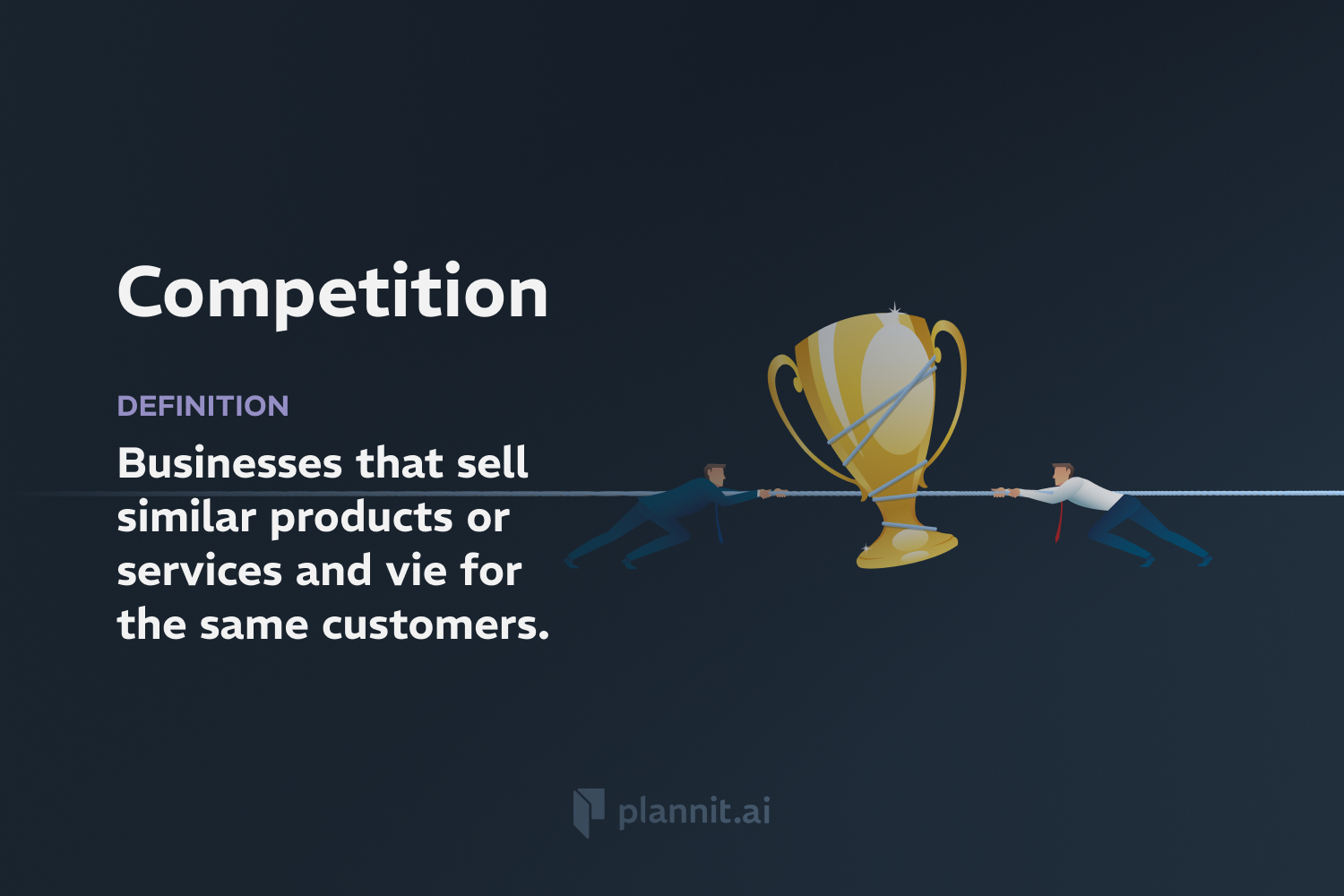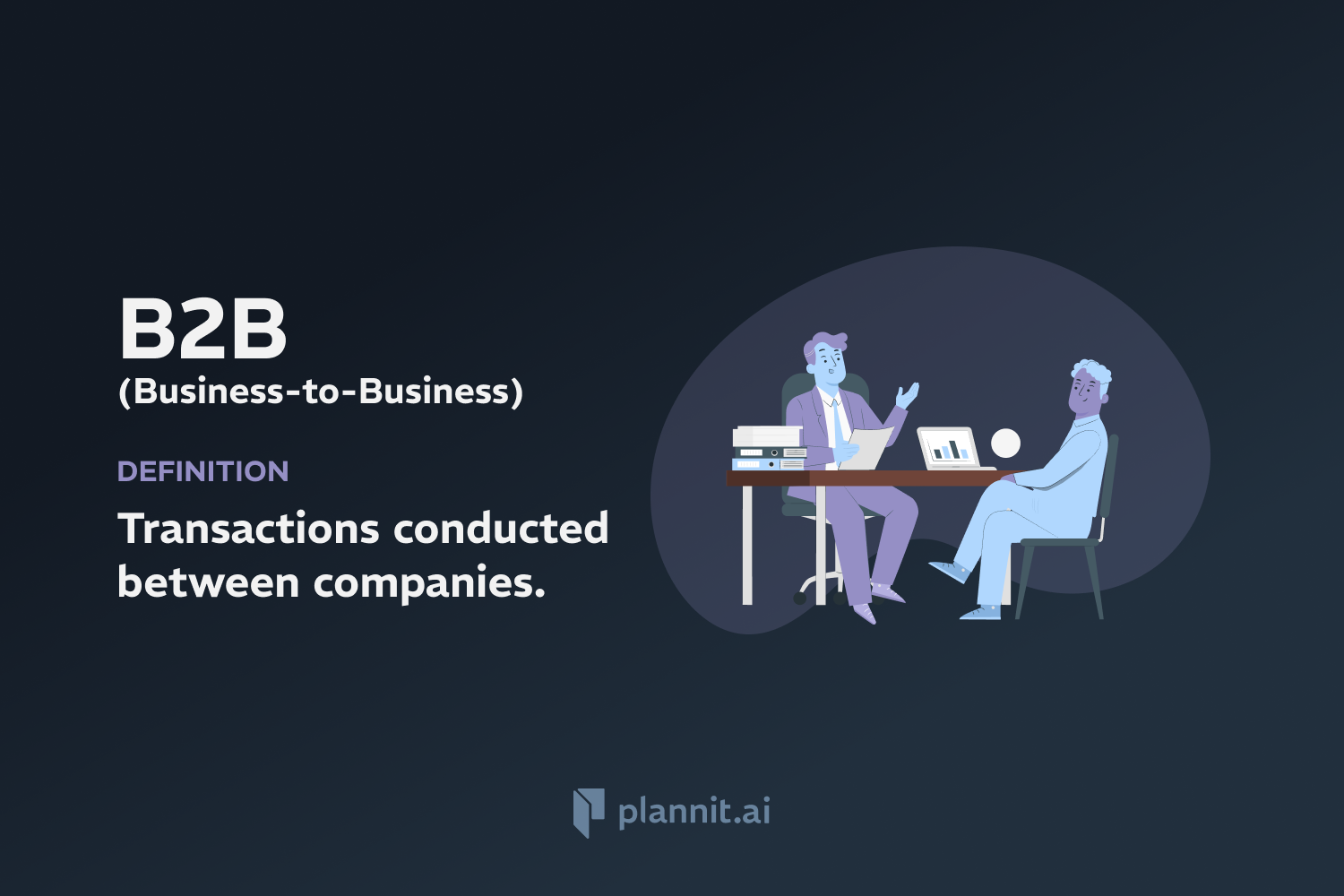Need Help With Your Business Plan?
Answer tailored questions and get a detailed business plan in minutes.
Competition: Definition & In-Depth Explanation

In business, competition refers to the rivalry among companies selling similar products or services with the goal of achieving revenue, profit, and market share growth. Competition influences pricing, product development, customer service, and marketing strategies among businesses in the same industry.
Purpose:
The purpose of competition is to drive innovation, improve quality, reduce prices, and enhance choice for consumers. For businesses, competition compels them to continuously improve their offerings and operational efficiency to attract and retain customers, thus fostering a dynamic market environment.
Example:
In the smartphone industry, companies like Apple, Samsung, and Huawei compete intensely by regularly introducing new products with advanced features, aggressive marketing campaigns, and strategic pricing. This competition not only drives technological advancements but also provides a wide range of options for consumers.
Related Terms:
Market Share: The portion of a market controlled by a particular company or product.
Monopoly: A market structure characterized by a single seller, offering a unique product in the market without any close substitutes.
Oligopoly: A market structure in which a small number of firms has the large majority of market share and typically engage in competition yet also cooperate in setting prices and supplies.
Price Competition: A type of rivalry between companies that involves lowering product prices to attract more customers.
FAQs:
How does competition affect consumer choices?
Competition increases consumer choices by motivating companies to diversify their product offerings and reduce prices, thereby enhancing consumer welfare.
What are the benefits of competition for businesses?
While challenging, competition encourages businesses to innovate, improve quality, manage costs efficiently, and focus on customer satisfaction, which can lead to increased loyalty and a stronger market position.
Can competition be harmful to small businesses?
Intense competition can be challenging for small businesses, especially if they are unable to achieve economies of scale, compete on pricing with larger players, or invest heavily in marketing and innovation like their bigger counterparts.
What strategies can businesses use to compete effectively?
Effective strategies include focusing on niche markets, developing unique products or services, enhancing customer experiences, and leveraging technology for better efficiency and engagement.
How is competition regulated?
Most countries have competition laws and regulatory bodies that monitor and control anti-competitive practices, ensure fair trading, and prevent monopolies and anti-competitive agreements that could hurt the market and consumer interests.
Get funding with a business plan that will impress investors.
Starting a New Business?


